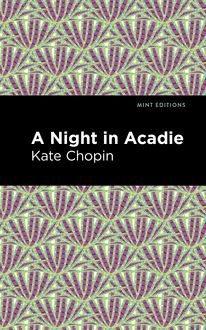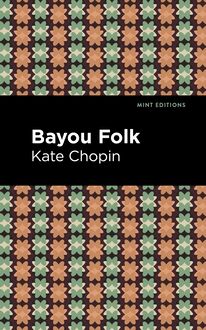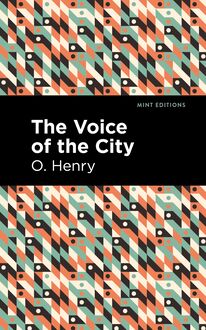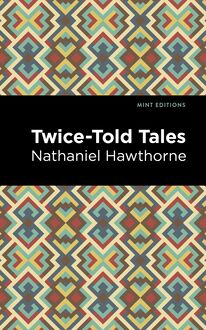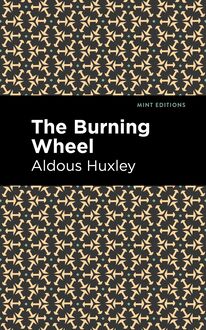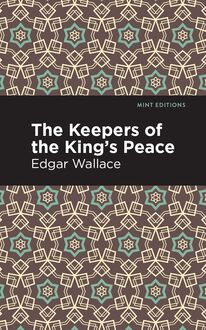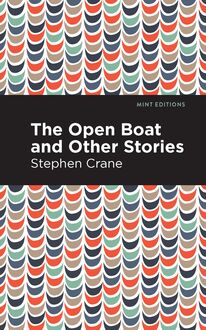-
 Univers
Univers
-
 Ebooks
Ebooks
-
 Livres audio
Livres audio
-
 Presse
Presse
-
 Podcasts
Podcasts
-
 BD
BD
-
 Documents
Documents
-
- Cours
- Révisions
- Ressources pédagogiques
- Sciences de l’éducation
- Manuels scolaires
- Langues
- Travaux de classe
- Annales de BEP
- Etudes supérieures
- Maternelle et primaire
- Fiches de lecture
- Orientation scolaire
- Méthodologie
- Corrigés de devoir
- Annales d’examens et concours
- Annales du bac
- Annales du brevet
- Rapports de stage
La lecture à portée de main
Vous pourrez modifier la taille du texte de cet ouvrage
Découvre YouScribe en t'inscrivant gratuitement
Je m'inscrisDécouvre YouScribe en t'inscrivant gratuitement
Je m'inscrisEn savoir plus
Vous pourrez modifier la taille du texte de cet ouvrage
En savoir plus

Description
Featuring five works of short fiction from the critically acclaimed author, Joseph Conrad, Tales of Unrest is a fascinating exploration of human struggle and philosophy. Karain: A Memory adopts elements of a traditional ghost story, setting an eerie mood as it explores the duality common among colonial and post-colonial people. The Idiots depict a family driven to murder after a couple stains to raise their intellectually disabled children. With the depiction of two white men placed in charge of an African trading post, An Outpost of Progress reveal the ethical issues of colonialism. Following a couple that has fallen out of love with each other, The Return is a domestic drama that explores the insecurities of a relationship riddled with infidelity, questioning if these issues inherently lie at the heart of all human relationships. Finally, The Lagoon depicts an emotional story set in the exciting and mysterious Indonesian rainforest. While travelling through the rainforest, Tuan is forced to spend a night with his old acquaintance, Arsat, who is struggling to manage his grief as his lover is on their deathbed. Prompted by sentiment, Arsat tells Tuan stories of his past as he wrestles with the reality of his lover’s soon-to-be death.
Assembled from Joseph Conrad’s early literary work, Tales of Unrest provides a unique glimpse into the original works of Conrad’s prolific and influential literary career. Each story within the Tales of Unrest collection is crafted with emotional depth and the classic, beloved style of Joseph Conrad. With remarkable settings, memorable characters, and intricate conflicts, Tales of Unrest explores an often hidden, grey area of humanity, addressing the supernatural, relationships, death, and unethical traditions with conviction.
This edition of Tales of Unrest by Joseph Conrad is redesigned with a striking new cover and is reprinted in a modern, easy-to-read font to accommodate contemporary readers and bring the exceptional prose of Joseph Conrad into the 21st century.
Sujets
Informations
| Publié par | Mint Editions |
| Date de parution | 08 décembre 2020 |
| Nombre de lectures | 1 |
| EAN13 | 9781513274393 |
| Langue | English |
| Poids de l'ouvrage | 3 Mo |
Informations légales : prix de location à la page 0,0450€. Cette information est donnée uniquement à titre indicatif conformément à la législation en vigueur.
Extrait
Tales of Unrest
Joseph Conrad
Tales of Unrest was first published in 1898.
This edition published by Mint Editions 2021.
ISBN 9781513269339 | E-ISBN 9781513274393
Published by Mint Editions®
minteditionbooks .com
Publishing Director: Jennifer Newens
Design & Production: Rachel Lopez Metzger
Typesetting: Westchester Publishing Services
C ONTENTS K ARAIN , A M EMORY T HE I DIOTS A N O UTPOST OF P ROGRESS T HE R ETURN T HE L AGOON
K ARAIN , A M EMORY
I
W E KNEW HIM IN THOSE unprotected days when we were content to hold in our hands our lives and our property. None of us, I believe, has any property now, and I hear that many, negligently, have lost their lives; but I am sure that the few who survive are not yet so dim-eyed as to miss in the befogged respectability of their newspapers the intelligence of various native risings in the Eastern Archipelago. Sunshine gleams between the lines of those short paragraphs—sunshine and the glitter of the sea. A strange name wakes up memories; the printed words scent the smoky atmosphere of to-day faintly, with the subtle and penetrating perfume as of land breezes breathing through the starlight of bygone nights; a signal fire gleams like a jewel on the high brow of a sombre cliff; great trees, the advanced sentries of immense forests, stand watchful and still over sleeping stretches of open water; a line of white surf thunders on an empty beach, the shallow water foams on the reefs; and green islets scattered through the calm of noonday lie upon the level of a polished sea, like a handful of emeralds on a buckler of steel.
There are faces too—faces dark, truculent, and smiling; the frank audacious faces of men barefooted, well armed and noiseless. They thronged the narrow length of our schooner’s decks with their ornamented and barbarous crowd, with the variegated colours of checkered sarongs, red turbans, white jackets, embroideries; with the gleam of scabbards, gold rings, charms, armlets, lance blades, and jewelled handles of their weapons. They had an independent bearing, resolute eyes, a restrained manner; and we seem yet to hear their soft voices speaking of battles, travels, and escapes; boasting with composure, joking quietly; sometimes in well-bred murmurs extolling their own valour, our generosity; or celebrating with loyal enthusiasm the virtues of their ruler. We remember the faces, the eyes, the voices, we see again the gleam of silk and metal; the murmuring stir of that crowd, brilliant, festive, and martial; and we seem to feel the touch of friendly brown hands that, after one short grasp, return to rest on a chased hilt. They were Karain’s people—a devoted following. Their movements hung on his lips; they read their thoughts in his eyes; he murmured to them nonchalantly of life and death, and they accepted his words humbly, like gifts of fate. They were all free men, and when speaking to him said, “Your slave.” On his passage voices died out as though he had walked guarded by silence; awed whispers followed him. They called him their war-chief. He was the ruler of three villages on a narrow plain; the master of an insignificant foothold on the earth—of a conquered foothold that, shaped like a young moon, lay ignored between the hills and the sea.
From the deck of our schooner, anchored in the middle of the bay, he indicated by a theatrical sweep of his arm along the jagged outline of the hills the whole of his domain; and the ample movement seemed to drive back its limits, augmenting it suddenly into something so immense and vague that for a moment it appeared to be bounded only by the sky. And really, looking at that place, landlocked from the sea and shut off from the land by the precipitous slopes of mountains, it was difficult to believe in the existence of any neighbourhood. It was still, complete, unknown, and full of a life that went on stealthily with a troubling effect of solitude; of a life that seemed unaccountably empty of anything that would stir the thought, touch the heart, give a hint of the ominous sequence of days. It appeared to us a land without memories, regrets, and hopes; a land where nothing could survive the coming of the night, and where each sunrise, like a dazzling act of special creation, was disconnected from the eve and the morrow.
Karain swept his hand over it. “All mine!” He struck the deck with his long staff; the gold head flashed like a falling star; very close behind him a silent old fellow in a richly embroidered black jacket alone of all the Malays around did not follow the masterful gesture with a look. He did not even lift his eyelids. He bowed his head behind his master, and without stirring held hilt up over his right shoulder a long blade in a silver scabbard. He was there on duty, but without curiosity, and seemed weary, not with age, but with the possession of a burdensome secret of existence. Karain, heavy and proud, had a lofty pose and breathed calmly. It was our first visit, and we looked about curiously.
The bay was like a bottomless pit of intense light. The circular sheet of water reflected a luminous sky, and the shores enclosing it made an opaque ring of earth floating in an emptiness of transparent blue. The hills, purple and arid, stood out heavily on the sky: their summits seemed to fade into a coloured tremble as of ascending vapour; their steep sides were streaked with the green of narrow ravines; at their foot lay rice-fields, plantain-patches, yellow sands. A torrent wound about like a dropped thread. Clumps of fruit-trees marked the villages; slim palms put their nodding heads together above the low houses; dried palm-leaf roofs shone afar, like roofs of gold, behind the dark colonnades of tree-trunks; figures passed vivid and vanishing; the smoke of fires stood upright above the masses of flowering bushes; bamboo fences glittered, running away in broken lines between the fields. A sudden cry on the shore sounded plaintive in the distance, and ceased abruptly, as if stifled in the downpour of sunshine. A puff of breeze made a flash of darkness on the smooth water, touched our faces, and became forgotten. Nothing moved. The sun blazed down into a shadowless hollow of colours and stillness.
It was the stage where, dressed splendidly for his part, he strutted, incomparably dignified, made important by the power he had to awaken an absurd expectation of something heroic going to take place—a burst of action or song—upon the vibrating tone of a wonderful sunshine. He was ornate and disturbing, for one could not imagine what depth of horrible void such an elaborate front could be worthy to hide. He was not masked—there was too much life in him, and a mask is only a lifeless thing; but he presented himself essentially as an actor, as a human being aggressively disguised. His smallest acts were prepared and unexpected, his speeches grave, his sentences ominous like hints and complicated like arabesques. He was treated with a solemn respect accorded in the irreverent West only to the monarchs of the stage, and he accepted the profound homage with a sustained dignity seen nowhere else but behind the footlights and in the condensed falseness of some grossly tragic situation. It was almost impossible to remember who he was—only a petty chief of a conveniently isolated corner of Mindanao, where we could in comparative safety break the law against the traffic in firearms and ammunition with the natives. What would happen should one of the moribund Spanish gun-boats be suddenly galvanized into a flicker of active life did not trouble us, once we were inside the bay—so completely did it appear out of the reach of a meddling world; and besides, in those days we were imaginative enough to look with a kind of joyous equanimity on any chance there was of being quietly hanged somewhere out of the way of diplomatic remonstrance. As to Karain, nothing could happen to him unless what happens to all—failure and death; but his quality was to appear clothed in the illusion of unavoidable success. He seemed too effective, too necessary there, too much of an essential condition for the existence of his land and his people, to be destroyed by anything short of an earthquake. He summed up his race, his country, the elemental force of ardent life, of tropical nature. He had its luxuriant strength, its fascination; and, like it, he carried the seed of peril within.
In many successive visits we came to know his stage well—the purple semicircle of hills, the slim trees leaning over houses, the yellow sands, the streaming green of ravines. All that had the crude and blended colouring, the appropriateness almost excessive, the suspicious immobility of a painted scene; and it enclosed so perfectly the accomplished acting of his amazing pretences that the rest of the world seemed shut out forever from the gorgeous spectacle. There could be nothing outside. It was as if the earth had gone on spinning, and had left that crumb of its surface alone in space. He appeared utterly cut off from everything but the sunshine, and that even seemed to be made for him alone. Once when asked what was on the other side of the hills, he said, with a meaning smile, “Friends and enemies—many enemies; else why should I buy your rifles and powder?” He was always like this—word-perfect in his part, playing up faithfully to the mysteries and certitudes of his surroundings. “Friends and enemies”—nothing else. It was impalpable and vast. The earth had indeed rolled away from under his land, and he, with his handful of people, stood surrounded by a silent tumult as of contending shades. Certainly no sound came from outside. “Friends and enemies!” He might have added, “and memories,” at least as far as he himself was concerned; but he neglected to make that point then. It made itself later on, though; but it was after the daily performance—in the wings, so to speak, and with the lights out. Meantime he filled the stage
-
 Univers
Univers
-
 Ebooks
Ebooks
-
 Livres audio
Livres audio
-
 Presse
Presse
-
 Podcasts
Podcasts
-
 BD
BD
-
 Documents
Documents
-
Jeunesse
-
Littérature
-
Ressources professionnelles
-
Santé et bien-être
-
Savoirs
-
Education
-
Loisirs et hobbies
-
Art, musique et cinéma
-
Actualité et débat de société
-
Jeunesse
-
Littérature
-
Ressources professionnelles
-
Santé et bien-être
-
Savoirs
-
Education
-
Loisirs et hobbies
-
Art, musique et cinéma
-
Actualité et débat de société
-
Actualités
-
Lifestyle
-
Presse jeunesse
-
Presse professionnelle
-
Pratique
-
Presse sportive
-
Presse internationale
-
Culture & Médias
-
Action et Aventures
-
Science-fiction et Fantasy
-
Société
-
Jeunesse
-
Littérature
-
Ressources professionnelles
-
Santé et bien-être
-
Savoirs
-
Education
-
Loisirs et hobbies
-
Art, musique et cinéma
-
Actualité et débat de société
- Cours
- Révisions
- Ressources pédagogiques
- Sciences de l’éducation
- Manuels scolaires
- Langues
- Travaux de classe
- Annales de BEP
- Etudes supérieures
- Maternelle et primaire
- Fiches de lecture
- Orientation scolaire
- Méthodologie
- Corrigés de devoir
- Annales d’examens et concours
- Annales du bac
- Annales du brevet
- Rapports de stage
